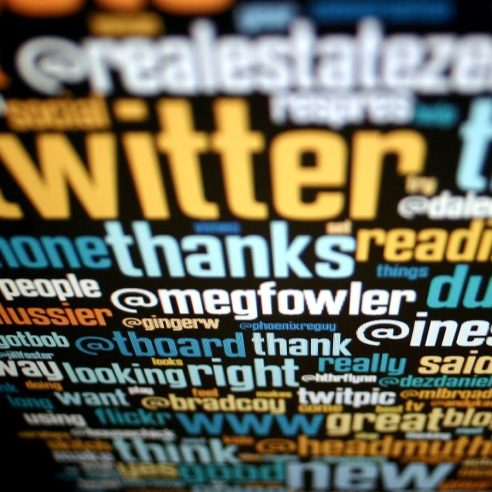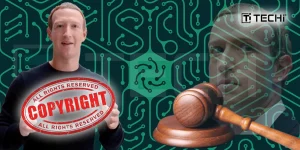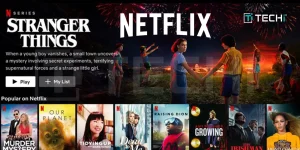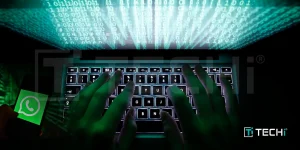My best friend asked me an unexpected question last week: “What is Twitter? What’s the point?” And I, the genius that I am, immediately thought I’d be able to answer that question in a heartbeat, but after around 15 seconds of thinking about it and not being able to come up with a clear-cut answer, I realized something quite important about Twitter’s future.
Anyways. I eventually told my friend that Twitter is somewhat like Facebook. I told him that it was a place to share things that interest you while keeping people updated about your life.
But it was all met with the same response I had been hearing for awhile now: “Why would I want to tell people when I’m using the bathroom or what I’m eating for breakfast?” And then there was also the, now classic, “Isn’t that why I use Facebook?” response as well.
All that I could do was sigh. I had to move on.
Sadly, those responses are all fairly similar to all my other attempts to convert some of my friends to become Twitterers. Most of them, admittedly, are not as geeky and social-media savvy as I am, but many of them are on Facebook and MySpace, so I am led to believe that they understand this social networking stuff. But no. Not Twitter.
So if I couldn’t explain Twitter to a complete stranger or a best friend and convince a person of the site’s usefulness, how on Earth is Twitter going to accomplish that?
It seems pretty darn impossible.
It’s Not the Fail Whale’s Fault
So there must be a problem with Twitter. But no. I am not talking about the fail whale — which is an aggravating sight in its own right.
The problem is, however, Twitter’s identity, or lack thereof. Yup,
Twitter has an identity problem.
I regard Twitter as a marketing tool, as that is what I use it for — marketing myself to the world. I use it as a pathway to communicate and network with people I am interested in. It is, in essence, the best networking tool out there for making new connections easily (as finding new people to talk to on Facebook is vastly more challenging).

On the flip side, I regularly use Facebook to connect, communicate, and share with the 100 or so friends I have on there, keeping it strictly as a communication tool for my close friends.
Just looking at that, the differences in usage are quite extraordinary, considering that, at their core, they are both social networks.
So why would the average person — who, mind you, doesn’t really care about marketing or networking — actually bother with Twitter? Well, they wouldn’t! They would have very little use for Twitter, other than to tweet about what they do throughout the day to a bunch of people who don’t really care anyways.
I’m quite sure that this is why there are so many inactive accounts on Twitter. People have signed up for the site, posted one or two tweets, and have never returned — dismissing the site’s potential altogether.
Know Thyself
But then it hit me — when looking at it from their perspective, I can actually understand why so many people think that Twitter is a pointless tool that could be passed up for Facebook. It’s because Twitter serves an entirely different purpose than sites like Facebook.
And while I can understand why various people wouldn’t want to use Twitter, I still didn’t understand the reasoning behind that decision.
It’s complicated.
So I managed to come up with a far simpler description of the differences between Twitter and Facebook:
Twitter’s focus is on
connecting individuals with everyone, while
Facebook’s purpose is
connecting individuals with people they already know.
But it makes me wonder if Twitter’s growth will rely more upon people’s acceptance of self marketing and networking instead of features and functionality. I think that this is true. And when you think about it, it actually makes sense.
Sharing Is Caring
Slowly but surely, people are beginning to realize that it is okay to share information with the world. With MySpace, you created a personalized home to share your personality and connect with people, with the blog feature being the only effective way to communicate with others. Facebook took it to the next level by enabling users to share information with your closest friends. And Twitter took it the next step by enabling users to share this information with the entire world, bringing us to the point where we are all connected in some way now.
This is why I think it is in Twitter’s best interest to focus on spreading the word about what Twitter does best: how it improves people’s lives, how it connects people to others, and how people should use it, instead of adding all these extra features that will ultimately fail to attract those users who are still on the edge.
If Twitter can market their product as the future of mass networking, communication, and marketing — instead of being a mere social network to tell people what you are doing — I believe it would give hundreds of thousands of people a better understanding of what the site is all about. Because when you think about it, while Twitter has many similarities with existing social networks, the way Twitter is used is fundamentally different than most other social networks out there.
Sure, this isn’t some huge revelation for someone like me or any other person that uses Twitter. But for everyone else, I think an effort to give Twitter an identity, purpose is far more important than any tacked on feature at this point in time.
And that is why a lack of identity could be the ultimate Twitter killer.
With that in mind, how do you explain Twitter to your friends? On the flip side, I regularly use Facebook to connect, communicate, and share with the 100 or so friends I have on there, keeping it strictly as a communication tool for my close friends.
Just looking at that, the differences in usage are quite extraordinary, considering that, at their core, they are both social networks.
So why would the average person — who, mind you, doesn’t really care about marketing or networking — actually bother with Twitter? Well, they wouldn’t! They would have very little use for Twitter, other than to tweet about what they do throughout the day to a bunch of people who don’t really care anyways.
I’m quite sure that this is why there are so many inactive accounts on Twitter. People have signed up for the site, posted one or two tweets, and have never returned — dismissing the site’s potential altogether.
On the flip side, I regularly use Facebook to connect, communicate, and share with the 100 or so friends I have on there, keeping it strictly as a communication tool for my close friends.
Just looking at that, the differences in usage are quite extraordinary, considering that, at their core, they are both social networks.
So why would the average person — who, mind you, doesn’t really care about marketing or networking — actually bother with Twitter? Well, they wouldn’t! They would have very little use for Twitter, other than to tweet about what they do throughout the day to a bunch of people who don’t really care anyways.
I’m quite sure that this is why there are so many inactive accounts on Twitter. People have signed up for the site, posted one or two tweets, and have never returned — dismissing the site’s potential altogether.





10 User Comments
Nick
Great article: I think that little by little Twitter has defined its identity. My sense is that Twitter basically means “real-time information” (more oriented to general information that is generated every minute.) and Facebook is a place where “share things with people who are connected to you”, a platform I share things “more personal”, such as photos, videos, etc).
Genevieve
I always tell my friends that Twitter is like Facebook without all the superfluous crap. 😉 Personally, I find Twitter and the people/friends/contacts I follow on Twitter far more valuable/useful and informative than anything on Facebook. It’s easier to target specific kinds of information on Twitter. And I actually find that there’s far less “what I ate for breakfast” going on on Twitter than there is in my Facebook friends feed… Viva la Twitter! 🙂
cleawalford
I also agree that Twitter will be around for a long time (and steadily grow).
James Mowery
@#1
I agree that Twitter will be around for quite awhile. It is obviously a powerful tool that has great potential. But it is quite discouraging to learn how little the general public simply shows little to any interest in Twitter.
I just believe that Twitter could really help itself by putting on a marketing campaign or something else that would better offer an idea to the general public of what it is and how it could be used, because most people still don’t understand.
But I do believe Twitter will grow as more people become aware of the importance of self marketing and social connections.
7php.com
Hi James,
this is a nice discussion you brought forward. While it is true that people not related to the web, IT world, marketing..etc would normally not find Twitter as useful as facebook, Twitter is not gonna fade away any soon. It has a very big user base, mostly of people involving in marketing, business, making money and fame. These people are the pillars of the web ecosystem as we see it today.
But obviously, perhaps we would like to see some more innovations from them.
I like your definition:
“Twitter’s focus is on connecting individuals with everyone, while Facebook’s purpose is connecting individuals with people they already know.”